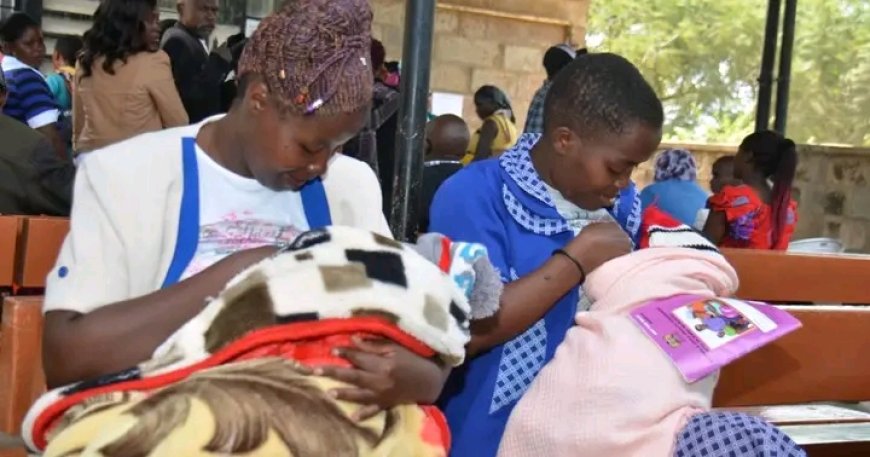Organizations urged to set aside breastfeeding stations in their workplaces

Kiambu
Wednesday, August 2, 2023l
KNA by Wangari Ndirangu
The United Nations Children's Fund (UNICEF) and the World Health Organization (WHO) are emphasizing the need for greater breastfeeding support across all workplaces to sustain and improve progress on breastfeeding rates globally.
The two organization said that greater progress is possible when breastfeeding is protected and supported particularly in the workplace, even as many countries are making significant progress to increase exclusive breastfeeding rates.
In a press release Tuesday as the world marks Breastfeeding Week under the theme “Let’s make breastfeeding at work, work”, the two organizations said in the last decade, the prevalence of exclusive breastfeeding has increased by a remarkable 10 percentage points to 48 per cent globally.
According to the statement, however, to reach the global 2030 target of 70 percent, the barriers women and families face to achieving their breastfeeding goals must be addressed.
“Supportive workplaces are key, UNICEF Executive Director Catherine Russell and WHO Director-General Dr Tedros Adhanom Ghebreyesus said in the joint statement.
They noted that although evidence shows that while breastfeeding rates drop significantly for women when they return to work, the negative impact can be reversed when workplaces facilitate mothers to continue to breastfeed their babies.
“Family-friendly workplace policies such as paid maternity leave, breastfeeding breaks, and a room where mothers can breastfeed or express milk usually creates an environment that benefits not only working women and their families but also employers,” the statement said.
According to the two organizations, these policies generate economic returns by reducing maternity-related absenteeism, increasing the retention of female workers, and reducing the costs of hiring and training new staff.
The Government of Kenya passed the Health Act, 2017 that includes clauses that require employers to set up lactation stations in the workplace, thus helping mothers to combine their role at work and their role to breastfeed their baby or express milk to be stored in appropriate conditions for use by the baby during periods of separation from the mother.
The Breastfeeding Mother’s Bill, 2019 has also been developed in response to the gaps that were evident in the implementation of the Health Act, 2017 where the compliance by employers was found to be quite low.
Essentially, the Breastfeeding Mother’s Bill, 2019 seeks to promote the continued bonding of mother and child through the creation of breastfeeding-friendly work environments.
WHO said that countries as diverse as Cote d’Ivoire, Marshall Islands, the Philippines, Somalia and Vietnam have achieved large increases in breastfeeding rates, showing that progress is possible when breastfeeding is protected, promoted, and supported.
WHO and UNICEF are calling upon countries to ensure they support breastfeeding environments for all working mothers including those in the informal sector by having access to regular breastfeeding breaks and facilities that enable mothers to continue breastfeeding their children once they return to work.
They are further asking for sufficient paid leave for all working parents and caregivers to meet the needs of their young children and this includes paid maternity leave for a minimum of 18 weeks, preferably for a period of six months or more after birth.
UNICEF works in some of the world’s toughest places to reach the world’s most disadvantaged children while WHO provides global leadership in public health within the United Nations system.
Courtesy ; K. N. A
What's Your Reaction?































































































































































































































































































